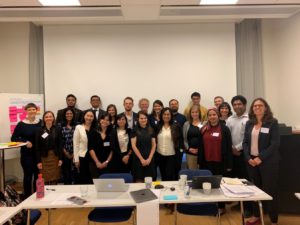
Effective climate action is urgent in the light of the goal to limit global warming to well below 2°C or 1.5°C. Without such action decades of progress in sustainable development will be undermined by the impacts of climate change. Yet, the interlinked nature of climate and sustainable development action require that both governments and non-state actors seek to avoid negative impacts and to maximize synergies. As less than 11 years are left for the implementation of the Sustainable Development Goals and given the urgency of climate action, it is now critical to ensure a coherent implementation of the two agendas and to accelerate progress.
Under the third-party funded project „Overcoming incoherence in implementing the Paris Climate Agreement and the 2030 Agenda“, DIE organized a workshop in cooperation with the Stockholm Environment Institute (SEI) and Linköping University in Stockholm from 10-11 September. The workshop aimed to establish an international partner consortium and to develop a joint research programme that would take the current project further. To that end, scientists and policy makers from nine partner countries as well as from international organizations (OECD, UNDP) convened and exchanged their experiences on conflicting goals and political incoherence at the national and international levels. Building on this exchange and the project outcomes to date, an analytical framework was developed to support the upcoming research proposal for a three- to four-year international research programme.
The analytical framework aims to take a critical approach on policy (in)coherence and to address the three key underlying factors (“three I’s”): ideas, interests and institutions. Applying this framework, in-depth comparative country case studies and knowledge-based tools for policy makers and stakeholders are planned under the future proposal to manage conflicts of climate and sustainable development objectives and to promote policy coherence.

Schreibe einen Kommentar